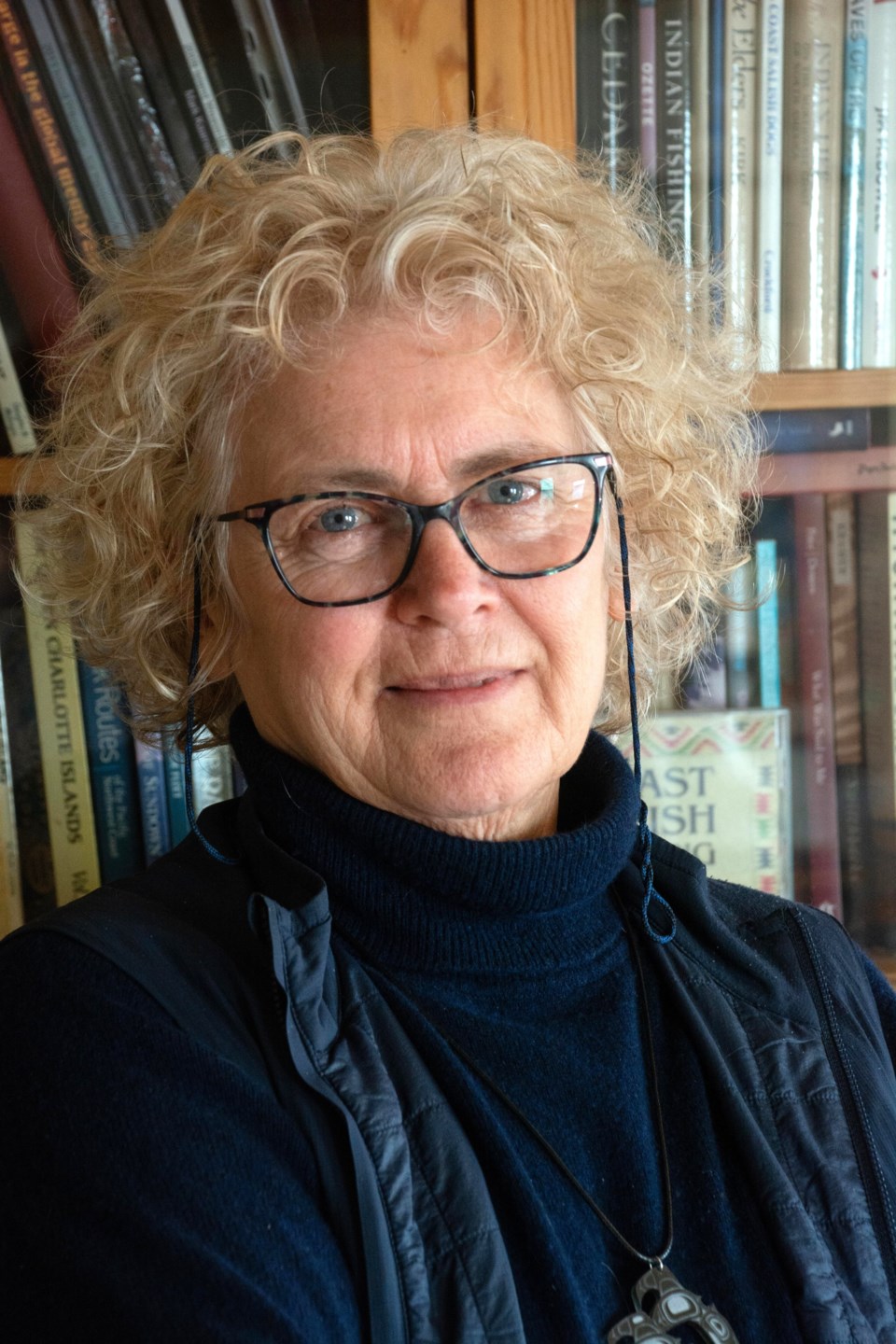Although canine wolf species have lived in North America for thousands of years, it has been a common belief that North American dogs were not domesticated from North American wolves, but likely originated in Siberia and migrated alongside people.
However, the accidental discovery of the pelt of a 150-year-old Coast Salish woolly dog named Mutton at the Smithsonian by an archivist has put a question mark on this theory.
DNA sequencing of the pelt also confirmed what west coast Indigenous oral histories already had said: Coast Salish woolly dogs were bred for thousands of years for their wool fibres in order to make blankets and robes.
Now, a new book titled, The Teachings of Mutton: A Coast Salish Woolly Dog, authored by master spinner and researcher Liz Hammond-Kaarremaa, with co-authors Kerrie Charnley, chief Janice George and Debra Sparrow, along with many other weavers, elders and knowledge keepers, explores the enigmatic small dog and its significance to Coast Salish culture.
The Peak spoke with Hammond-Kaarremaa, who will vist the qathet region next month, about her experience writing the book alongside the other contributors.
"I'm a spinner, making yarn," said Hammond-Kaarremaa. "I took a six or seven year program, and to become a master spinner, they require you to do a research project."
Hammond-Kaarremaa said she decided to learn more about Coast Salish spinning, because of the unique tools, techniques and fibre they use.
"So in terms of tools, they used a very large spindle whorl and you see that artwork all over the place today, like Susan Point’s artwork in Victoria," said Hammond-Kaarremaa. "I'd also heard about them raising the woolly dog, typically, for its hair to spin into yarn."
Hammond-Kaarremaa said what's even more interesting is that when DNA testing was done on the dog's pelt, they found that Mutton's lineage actually goes back at least 2,000 to 5,000 years.
"The other thing they found was it wasn't like a dog that came from Asia," said Hammond-Kaarremaa. "I was encouraged by some Coast Salish people to write a book, but I just felt I wasn't comfortable writing about Coast Salish history."
She then found out that a wool-weaving centre in Washington State was working with the Burke Museum in Seattle on an exhibit called: Woven in Wool: Resilience in Coast Salish Weaving, showcasing both historical and contemporary woven items.
"I thought, well, I could do it with them, because they were encouraging me to write something," said Hammond-Kaarremaa. "When we were doing the DNA research, and I was interviewing Coast Salish people about stories about woolly dogs, the people I interviewed, and the advisory committee both said, ‘write something for the general public so people can learn more.’"
The book interweaves perspectives from Musqueam, Squamish, Stó:lō, Suquamish, Cowichan, Katzie, Snuneymuxw and Skokomish cultures with narratives of science, post-contact history and the lasting impacts of colonization.
"Stories of the coastal woolly dog are prominent in their oral history," said Hammond-Kaarremaa. "The coastal woolly dog was really important to people, and some families say they descended from one of the woolly dogs, so it's really tied into their origin story."
Mutton was different from most woolly dogs because he was owned by an American ethnographer and was not used for his wool. However, Hammond-Kaarremaa said his ancient DNA tells a story of deliberate breeding over thousands of years, indicating particular management to bring out unique wool-like characteristics in his hair and keep the breed separated from village and hunting dogs over millennia.
Hammond-Kaarremaa will give a talk about her new book at the Powell River Public Library on Tuesday, August 26, at 3 pm.
Join the Peak’s email list for the top headlines right in your inbox Monday to Friday.




